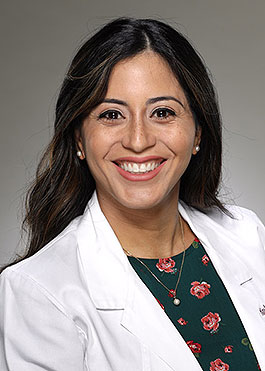
July is recognized as African American Bone Marrow Awareness Month, an opportunity to highlight health disparities affecting Black and African American patients in need of life-saving blood stem cell and bone marrow therapies.
We asked Dr. Lizamarie Bachier, an attending physician with the Northside’s blood and marrow transplant and hematologic malignancy programs, to discuss these disparities and what can be done to increase access to treatment options and improve outcomes.
What blood cancers are more common in African Americans?
Dr. Bachier: Multiple myeloma is a prime example of an incurable blood cancer that is more common in African Americans. Other rare blood cancers like HTLV-1-associated adult T-cell leukemia and lymphoma and other T-cell leukemias and lymphomas are also more prevalent in African Americans.
Why are they more common?
Dr. Bachier: Genetics play a role in HTLV-1-associated ATLL and myeloma but geography and other factors like diagnosis and treatment are also important.
Is there any research looking at this disparity?
Dr. Bachier: Yes, organizations like the American Society of Hematology have increased funding and research dedicated to Diversity, Equity and Inclusion (DEI) in health care. The goals of these DEI initiatives are to increase minority representation in clinical trials, expand access to health care and ensure that patients from traditionally disadvantaged backgrounds have equal opportunity in innovative clinical care from screening to treatment. Many pharmaceutical companies have followed these initiatives with guidance from the U.S. Food and Drug Administration, which strongly encourages diverse participation in clinical trials.
What can be done to improve access to treatment?
Dr. Bachier: Community outreach and education are critical to improving access to health care. Patients also need to feel they are represented by their treating clinicians, which underscores the importance of inspiring and recruiting researchers and clinicians from diverse cultural and ethnic backgrounds.
Is there anything that can be done to prevent blood cancers?
Dr. Bachier: Most blood cancers occur through spontaneous somatic mutations of blood cells. Unfortunately, there is nothing that can be done to prevent these mutations from happening. However, maintaining a healthy lifestyle is always important to improve success with different treatment modalities. This includes avoiding harmful substances, not smoking, adhering to a healthy diet, leading an active lifestyle and exercising regularly.
What symptoms should one look out for?
Dr. Bachier: Symptoms from blood cancers are not very specific. Most patients will be asymptomatic for a long time and symptoms will present when the disease is advanced. Anemia, which is low hemoglobin, can cause fatigue, tiredness and shortness of breath. Low platelet counts can lead to bruising or bleeding. In multiple myeloma cases, bone disease can result in fractures and pain, such as lower back pain. Having routine follow-ups with a primary care doctor is important to talk about any new concerns that may need specific blood tests for further evaluation.
Expanding the pool of donors for allogeneic hematopoietic stem cell transplant:
Dr. Bachier: The likelihood of finding a fully matched unrelated donor in the NMDP registry for ethnic minorities is very low, ranging from 10%-40% compared to over 70% for Caucasians. The use of haploidentical donors has greatly expanded the pool of available donors for patients of all ethnicities and races. Using specific treatments to prevent and treat graft-versus-host disease (GVHD) and rejection, we can now find donors for about 90% of patients using partially matched related or unrelated donors.
Physicians with Northside Hospital’s Blood & Marrow Transplant Program have been pioneers in the successful use of haploidentical transplants for blood diseases, showing excellent success and survival outcomes. Today, African American patients who may not have a “perfect” match in the NMDP registry can benefit from a haploidentical related transplant or a partially mismatched unrelated transplant, offering them survival chances comparable to other patients.
Learn more about blood cancer treatment at Northside Hospital Cancer Institute.

